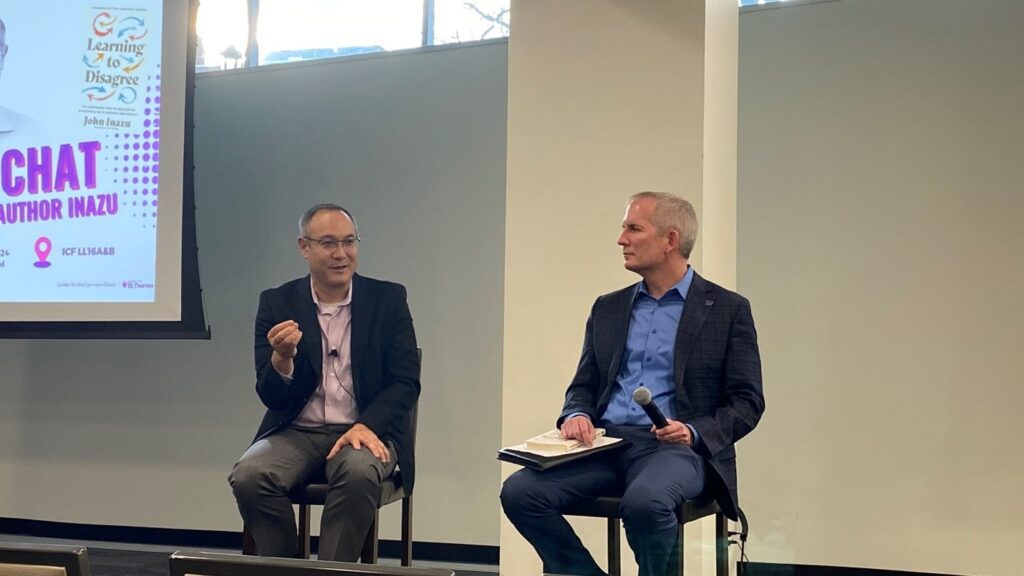Ever wanted to get inside a recruiter’s head? What is he or she thinking when you are relaying past experiences and attempting to answer those behavioral interview questions succinctly with the right amount of detail and passion? What do recruiters deem the greatest interview mistakes and how are they using social media these days? These are a few of the questions that were posed to the recruiters from Target, Buffalo Wild Wings, Moneygram, Datacard and CMD Associates at the Recruiter Panel lunch event held by Graduate Business Career Services on March 6th.
Jennifer Finkelson (Buffalo Wild Wings), Dana Schulz (Target), Stefanie Haglend (Moneygram), Twanda DeBorde (CMD Associates), and Julie Serlin (Datacard Group) spent an hour and half with the full time MBA students providing interview tips and answering an array of student questions. Here is a quick summary of the do’s and don’ts when it comes to applying and interviewing at these top corporations.
DO:
Come Prepared: Be ready with a list of questions for your interviewer that show an understanding of the company values, recent newsworthy events, and overall culture. Make sure you have stories (2 minutes max) ready to share when behavioral interview questions are asked. The scenarios you share should include quantifiable results that had a broad impact on your overall job.
Show Passion, Be Energized, Come Curious: Recruiters want to feel your excitement for the position. Show them your interest through answering questions passionately with the appropriate level of enthusiasm. Let your natural curiosity shine through with questions and an attitude that shows you are ready to learn and contribute.
 Be Confident: Confidence is portrayed through good eye contact, a firm (not death grip) handshake, and succinct to the point answers. Be confident, but be yourself.
Be Confident: Confidence is portrayed through good eye contact, a firm (not death grip) handshake, and succinct to the point answers. Be confident, but be yourself.
Complete your LinkedIn Profile: Julie Serlin, from Datacard, remarked that she keeps LinkedIn open on her desktop throughout the day. She refers to it repeatedly to source candidates or to ensure that resumes are consistent with LinkedIn profiles. An incomplete profile is akin to an incomplete brand. Make sure you have a professional looking photo, a detailed experience section with 2-3 bullets for each position held in the past 10 years, and a least a few recommendations.
DON’T:
Ask a Transparent, Inappropriate Question: “How long until I get promoted” does not show passion or interest in the current position. It does, however, portray overconfidence and, quite frankly, doesn’t make you overly likable.
Get Caught without Enough Questions: This comes with preparation. There really is no such thing as too much research when it comes to interviewing. Familiarize yourself with the company website, read articles in Forbes, WSJ, and Inc. to get up-to-date on news worthy events relating to the company or its competitors. All of this research proves useful when it comes to the point of the interview where the candidate can pose questions. When you meet with several representatives at a company, it’s crucial to have curious, insightful, unique questions for each interviewer. The only way to be ready for this is to research.
As always be true to yourself, be polished, be prepared, and be passionate. Approach each interview as an opportunity to learn and grow, and always do your best. Even if you don’t land the position you are applying for, you will have made an impact on the recruiter and hiring committee. You want to make that impact a positive one.






